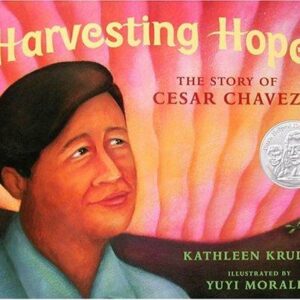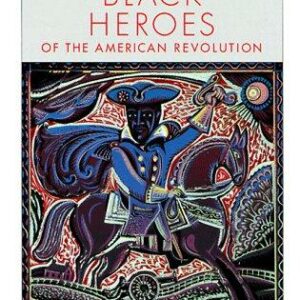Bad Faith
$16.99
| Title | Range | Discount |
|---|---|---|
| Trade Discount | 5 + | 25% |
- Description
- Additional information
Description
A surprising and disturbing origin story
There is a commonly accepted story about the rise of the Religious Right in the United States. It goes like this: with righteous fury, American evangelicals entered the political arena as a unified front to fight the legality of abortion after the Supreme Court’s 1973 Roe v. Wade decision. The problem is this story simply isn’t true. Largely ambivalent about abortion until the late 1970s, evangelical leaders were first mobilized not by Roe v. Wade but by Green v. Connally, a lesser-known court decision in 1971 that threatened the tax-exempt status of racially discriminatory institutions—of which there were several in the world of Christian education at the time. When the most notorious of these schools, Bob Jones University, had its tax-exempt status revoked in 1976, evangelicalism was galvanized as a political force and brought into the fold of the Republican Party. Only later, when a more palatable issue was needed to cover for what was becoming an increasingly unpopular position following the civil rights era, was the moral crusade against abortion made the central issue of the movement now known as the Religious Right. In this greatly expanded argument from his 2014 Politico article “The Real Origins of the Religious Right,” Randall Balmer guides the reader along the convoluted historical trajectory that began with American evangelicalism as a progressive force opposed to slavery, then later an isolated apolitical movement in the mid-twentieth century, all the way through the 2016 election in which 81 percent of white evangelicals coalesced around Donald Trump for president. The pivotal point, Balmer shows, was the period in the late 1970s when American evangelicals turned against Jimmy Carter—despite his being one of their own, a professed “born-again” Christian—in favor of the Republican Party, which found it could win their loyalty through the espousal of a single issue. With the implications of this alliance still unfolding, Balmer’s account uncovers the roots of evangelical watchwords like “religious freedom” and “family values” while getting to the truth of how this movement began—explaining, in part, what it has become. Publishers Weekly “Enriched with lucid discussions of legal issues and incisive sketches of political and religious leaders, this revisionist history is sure to spark debate.”“Bad Faith is a fantastic primer on one of the most potent and controversial political forces of the past half century—the Religious Right. Bad Faith upends the tidy narrative that protesting abortion was the issue that rallied evangelicals in the political realm. Randall Balmer’s historical research helps restore the true and infuriating story, that racism, once again, played a central role in shaping the political and religious landscape of the nation. Before you read another headline or write another social media post about religion, race, or politics, read this book.”
— Jemar Tisby New York Times bestselling author of The Color of Compromise: The Truth about the American Church’s Complicity in Racism “Forget whatever you've always heard about the beginnings of the Religious Right. Balmer’s highly engaging and provocative book pulls back the curtain to reveal how race, not abortion, was the key issue in the birth of what has become a powerful and disturbing alliance.”
— The Most Rev. Michael B. Curry presiding bishop of the Episcopal Church and author of Love is the Way: Holding on to Hope in Troubling Times “This brilliant, readable detective story demonstrates that the Religious Right, far from speaking for all evangelicals, has masked its recent—and deviant—origin among groups advocating white supremacy. Here Randall Balmer, our most influential historian of American evangelical Christianity, sets forth the evidence and calls for evangelical Christians to return to their actual sources—the teachings of Jesus.”
— Elaine Pagels Harrington Spear Paine Professor of Religion at Princeton University
“I have been waiting for this book. Randall Balmer’s Bad Faith is the essential reader for all who want to know how America was pushed to the brink and how the evangelical church was led off a cliff. Balmer’s Bad Faith tells the story of how white supremacy was, and continues to be, the central motivating factor of the Religious Right—not abortion. This quick and easy read packs a mighty punch. Every American must read this book before they cast their next vote.”
— Lisa Sharon Harper author of The Very Good Gospel “This compelling, timely, tremendously important book is nothing less than the definitive origin story of the Religious Right. Balmer performs an essential service in definitively debunking the myth that the Religious Right was originally organized around opposition to abortion. The revealing and damning truth is that the Religious Right was initially organized in opposition to desegregating private Christian schools, which confirms that the Religious Right has always been racialized in its tactics and political aims. Their most recent embrace of Trumpism and all it represents is therefore the fruit of a poisonous tree of white supremacy and the Religious Right’s racial grievance politics nearly half a century in the making. You simply must read this book.”
— Jim Wallis New York Times bestselling author of Christ in Crisis? Reclaiming Jesus in a Time of Fear, Hate, and Violence “In spare and elegant prose, Balmer demolishes the myth that abortion was the issue that launched the Religious Right and replaces it with an uncomfortable fact: it was always about race. More than that, Balmer asks us to consider the consequences of the later suppression of that fact, and points to a profound connection between that willful forgetting and the alliance of the Religious Right with white supremacy and racist demagoguery today. Bad Faith invites us all to rethink our assumptions about the nexus of race, religion, and politics and the origins of our present crisis.”
— Katherine Stewart author of The Power Worshippers: Inside the Dangerous Rise of Religious Nationalism “For nearly two decades Randall Balmer has reminded us of the important role that racism played in the founding of the Christian Right. Thoughtful readers of all persuasions will come away from this concise and accessible introduction with a better understanding of the powerful connection between conservative evangelicalism and GOP politics.”
— John Fea author of Believe Me: The Evangelical Road to Donald Trump “Randall Balmer minces no words in this immensely useful and clarifying book. Bad Faith draws a sharp plot line out of the messy story of American evangelicalism and forces readers to confront hard truths about the role of racism in the history of the modern Christian Right.”
— Molly Worthen author of Apostles of Reason: The Crisis of Authority in American Evangelicalism “It is time evangelicals are better understood. They matter. Trump. Need I say more? As someone who helped contribute to fomenting the lie-based Republican strategy of a ‘pro-life’ platform back in the 1970s and ’80s, and who has heartily repented of my and my father Francis Schaeffer’s part in making abortion the divisive ‘litmus test’ it became, it is a relief to read the hard unvarnished and unlovely truth Balmer exposes in Bad Faith. America has paid dearly for the incursion of far-right evangelicals into her politics. The word timely hardly covers it in describing Balmer’s book. Anyone who wants to find the way back from the evangelical/Republican suicide pact of the Trump years needs to read this book.”
— Frank Schaeffer author of Crazy for God: How I Grew Up as One of the Elect, Helped Found the Religious Right, and Lived to Take All (or Almost All) of It Back Randall Balmer is the John Phillips Professor in Religion at Dartmouth College. He is the author of more than a dozen books, including Evangelicalism in America, Redeemer: The Life of Jimmy Carter, and Mine Eyes Have Seen the Glory: A Journey into the Evangelical Subculture in America, which is now in its fifth edition and has been made into an award-winning three-part series for PBS.
Table of ContentsPart One: Evangelicalism before the Religious Right
1. The Emergence of Progressive Evangelicalism
2. The Diversion of Dispensationalism
3. The Making of the Evangelical Subculture
4. The Chicago Declaration and Jimmy Carter
Part Two: The Abortion Myth and the Rise of the Religious Right
5. The Abortion Myth
6. What Really Happened
7. What about Abortion?
Part Three: So What?
8. The 1980 Presidential Election
9. Why the Abortion Myth Matters
Additional information
| Dimensions | 1 × 5 × 7 in |
|---|








